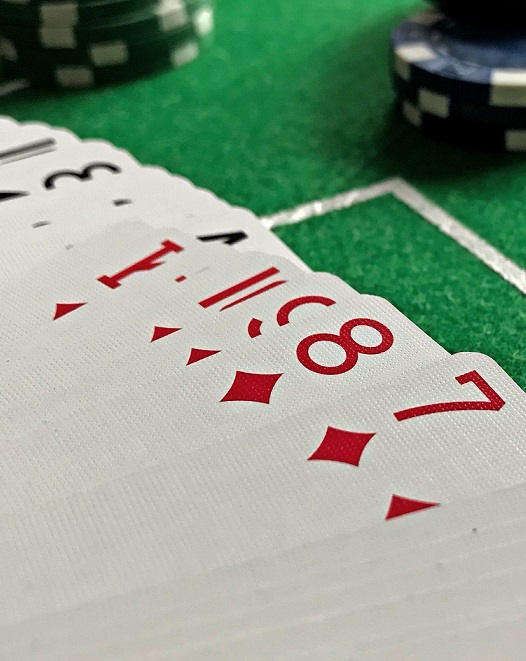 Mental game coaching has become a vital tool for improving performance in competitive settings, including online poker. Jared Tendler, a renowned mental game coach, has shared valuable insights on preparing mentally for high-stakes events like the World Series of Poker. Tendler treats the mind like an athlete’s body, ensuring it remains in peak mental condition during competition. His coaching emphasizes psychological resilience, emotional control, and maintaining a focused mindset—all essential elements for optimal performance in high-pressure environments.
Mental game coaching has become a vital tool for improving performance in competitive settings, including online poker. Jared Tendler, a renowned mental game coach, has shared valuable insights on preparing mentally for high-stakes events like the World Series of Poker. Tendler treats the mind like an athlete’s body, ensuring it remains in peak mental condition during competition. His coaching emphasizes psychological resilience, emotional control, and maintaining a focused mindset—all essential elements for optimal performance in high-pressure environments.
One key aspect of improving poker performance through mental game coaching is managing stress and avoiding tilt. Tilt refers to a state of emotional frustration that can severely impair decision-making. Techniques such as meditation, breathing exercises, and goal setting are often employed to help players achieve what’s known as “the zone,” a state in which a player is highly focused and performing at their best. Coaches like Dr. Stephen Simpson, who has worked with top players like Chris Moorman, emphasize these techniques to enhance focus and consistency during play.
In Canada, where online poker is thriving, integrating mental game coaching can significantly boost a player’s chances of success. Online poker in Canada has experienced substantial growth, generating $2.64 billion in 2021 and reaching $3.1 billion by 2023. The demographic of online poker players in Canada is diverse, with a significant portion aged between 30 and 50 years. This mature audience increasingly turns to online entertainment platforms, contributing to the industry’s expansion. The market has seen a surge in player participation and revenue, especially in regions like Ontario.
Techniques for Enhancing Performance
Mental game coaching employs various techniques tailored to the individual needs of players. These include cognitive-behavioral strategies, mindfulness practices, and personalized feedback to address specific mental challenges. One critical aspect of improving poker performance involves enhancing a player’s ability to stay composed under pressure. This includes recognizing and correcting mistakes while maintaining a positive mindset, even during losing streaks.
A study by Brendon Stubbs revealed that physical exercise, such as running, significantly improves cognitive function and gaming performance. Participants in the study demonstrated a 75% improvement in international gaming ratings, a 10% boost in cognitive function, and a 44% increase in confidence levels. Players who can consistently play their A-game tend to see a substantial improvement in their win rates. This connection between physical fitness and mental sharpness has gained attention in competitive gaming communities, with online poker players also benefiting from this approach.
The science behind poker performance further underscores the importance of emotional awareness and stress management. According to the Yerkes-Dodson Law, an optimal level of stress enhances performance, while excessive stress leads to diminished decision-making. Mental game coaching helps players achieve the right balance, ensuring they stay focused and composed, especially during high-stakes games. Players who maintain emotional control and avoid making impulsive decisions can experience more consistent results in the long term.
Mental Game Coaching in Competitive Settings
Mental game coaching isn’t limited to poker; it has gained traction in various competitive arenas, including esports, athletics, and other high-stakes environments. In poker, where decisions must be made under immense pressure, adopting these interdisciplinary approaches has produced impressive results. Online poker players can improve their decision-making processes and enhance their reliability through mental game coaching, particularly when faced with the inevitable ups and downs of competitive play.
For Canadian poker players, integrating mental game strategies provides a distinct advantage. The increasing competitiveness of the industry, as more players enter the online poker scene, requires enhanced focus and emotional resilience. Mastering the mental aspect of the game can set players apart in this fast-growing market.
Coaching Methodologies and Their Application
Mental game coaching involves strategies designed to enhance emotional control, reduce tilt, and improve focus and confidence during poker play. Jared Tendler’s methods, grounded in psychological principles, have been applied successfully to both poker players and professionals in other fields. These techniques include cognitive-behavioral strategies, mindfulness, and personalized feedback. These coaching methods focus on helping players maintain their composure under pressure, recognize mistakes, and correct them without letting frustration affect their game. Maintaining a positive mindset, even during losing periods, is crucial to sustained success in poker.
Many experts agree that mental game coaching is a key component of poker training. It helps players stay focused, manage stress, and make better decisions during high-pressure situations. Tendler’s work with poker players has proven the effectiveness of mental game coaching in overcoming common issues such as tilt, confidence, and motivation. By integrating mental game coaching into their routine, players can develop a more resilient and strategic approach to the game, leading to improved long-term performance.
Conclusion: Unlocking Success Through Mental Game Coaching
Mental game coaching is a powerful yet often overlooked aspect of improving poker performance, especially for online players in Canada. By utilizing strategies such as emotional control, mindfulness, and stress management, players can sharpen their focus, handle high-pressure situations more effectively, and make better decisions in their poker games. As the Canadian online poker industry continues to grow, mental game coaching will likely become even more crucial for players looking to gain a competitive edge. Players who can master tilt management, maintain their composure, and stay mentally sharp will be better equipped to succeed in the long term in this evolving and highly competitive environment.
